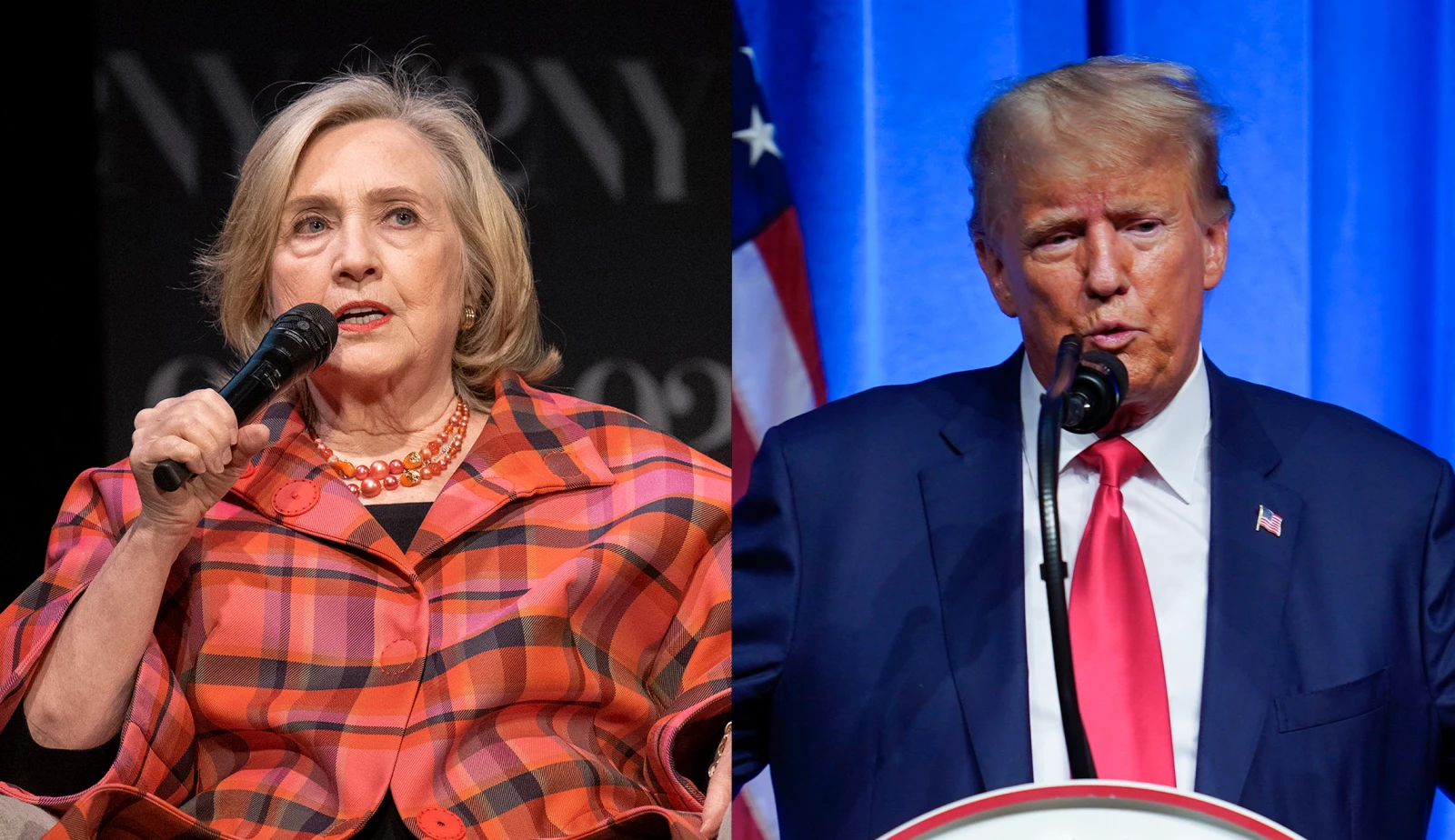By Elizabeth Stauffer. Media: Washington Examiner.
I read the Department of Justice’s indictment this weekend, and yes, it was a mess. Frankly, one can easily imagine former President Donald Trump ordering the movement of storage boxes from one location to another (and back again) and even waving a “senior military officials’” attack plan in front of a writer for dramatic effect. Reckless? Yes. A violation of the law? Maybe. As corrupt as Hillary Clinton’s mishandling and destruction of classified material? Or the Biden family’s alleged influence-peddling operation? Not by a long shot.
One need not defend Trump’s behavior as outlined in the indictment to point out that the Justice Department’s charges in this case are the result of selective prosecution. Consider, for example, the many cases of rule-bending and breaking that the DOJ has turned a blind eye to at Trump’s expense.
In March 2019, Fox News obtained a copy of an internal FBI chart created during its “Midyear Exam” investigation into Clinton’s use of a private server when she was secretary of state. The following comment appeared next to 18 U.S. Code 793 (f) , the section of the statute most applicable to Clinton’s case: “NOTE: DOJ not willing to charge this; only known cases are Military, cases when accused lost the information (e.g. thumb drive sent to unknown recipient at wrong address.)”
Call me crazy, but Clinton’s use of a private server, her subsequent deletion of more than 33,000 emails that were under subpoena with BleachBit, and the destruction of her personal cellphones with hammers sure sound like violations of 18 U.S.C. These measures go well beyond “gross negligence,” which was how then-FBI Director James Comey described Clinton’s actions in the first draft of his exoneration memo. In a later version, at the suggestion of the disgraced Peter Strzok, he downgraded his assessment of her behavior to “ extemely careless .”
That same month, the House released transcripts of the 2018 congressional testimonies of former high-ranking DOJ official Bruce Ohr and former FBI lawyer Lisa Page.
Ohr told lawmakers that when he brought the Steele dossier, a bogus piece of evidence paid for by the Clinton campaign to distract from her email scandal, to then-FBI Deputy Director Andrew McCabe and Page on July 30, 2016, he emphasized that it was opposition research paid for by Clinton and the DNC. He stressed that it was “uncorroborated” and had been compiled by Christopher Steele, a man who “hated” Trump and wanted to prevent him from winning the election.
Nevertheless, the FBI opened the Crossfire Hurricane investigation the next day.
In October 2016, fully aware of the facts, the FBI used the unverified dossier as the basis of its application to the Foreign Intelligence Surveillance Court for a warrant to spy on Carter Page, a junior adviser to the Trump campaign. In what journalists call “circular reporting,” the FBI used a Yahoo News article written by Michael Isikoff, who had used Steele as his source, to corroborate the dossier. And knowing this, Comey signed off on the application and two subsequent ones.
In January 2017, Comey met with then-President-elect Trump to brief him on the dossier. He reportedly told Trump it was “unverified” and “salacious.” In other words, the same document the FBI submitted as “verified” to a FISA court three months earlier was presented to Trump as dirty politics.
When the briefing ended, the duplicitous FBI director notified President Barack Obama’s Director of National Intelligence James Clapper that Trump had been briefed and he could give CNN the green light to publish the dossier story. They were all in on it.
Lisa Page testified that the DOJ pressured the FBI to scuttle the investigation into Hillary Clinton’s emails. Moreover, Page revealed that when then-Deputy Attorney General Rod Rosenstein appointed special counsel Robert Mueller in May 2017, the FBI had no evidence that Trump had colluded with the Russians to win the election. Nor had they been able to corroborate any of the claims made in the dossier.
The DOJ’s documented wrongdoing in the Russiagate case is vital to understanding the current case against Trump. It is no coincidence the Trump indictment was announced the same day that members of the House Oversight Committee viewed the FD-1023 form in which a highly credible and well-paid FBI confidential human source detailed allegations that President Joe Biden had taken a $5 million bribe from an executive at Ukrainian energy firm Burisma Holdings in exchange for policy decisions during his vice presidency.
Sources told the Washington Examiner that an FBI record reveals the executive was Ukrainian oligarch Mykola Zlochevsky, Burisma’s owner. Zlochevsky offered Hunter Biden a highly paid seat on its board of directors in April 2014 while his father was serving as Obama’s “point man” in Ukraine.
The Washington Examiner also reported that Zlochevsky referred to Joe Biden in his conversation with the informant by a familiar nickname: “the big guy.”
Sources who viewed the document told Fox News that the Ukrainian executive, now believed to be Zlochevsky, had paid “$5 million for one Biden, $5 million for the other Biden.”
In other words, a corruption case against the Biden family is on the verge of exploding. These are serious, damning allegations that, if proven, could cost the president much more than reelection.
No wonder Democrats are going scorched-earth on Trump.
Elizabeth Stauffer is a contributor to the Washington Examiner, Power Line, the Western Journal, and AFNN and is a past contributor to RedState, Newsmax, and Bongino.com . Her articles have appeared on many sites, including RealClearPolitics, MSN, and the Federalist. Please follow Elizabeth on Twitter or LinkedIn .





























































































Discussion about this post